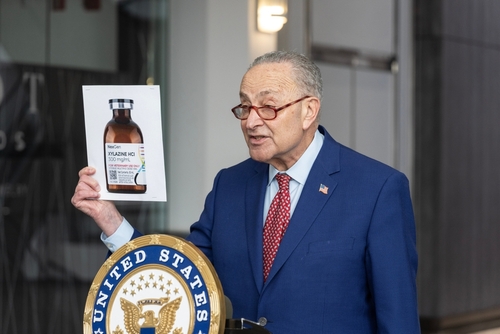
Fearing the proliferation of illicit versions of the drug xylazine – or tranq – and its effects on the U.S. public, the National Association of Attorneys General (NAAG) wrote to Congressional leaders last week urging passage of the Combating Illicit Xylazine Act (H.R. 1839).
The legislation would officially classify xylazine as a controlled substance. Unlike other items involved in the overdose troubles facing the country, xylazine is notable for being a non-opioid. In fact, it is a veterinary tranquilizer meant for large animals such as horses or deer and was never approved or accepted as a medical solution for humans. However, it is not currently a federally designated controlled substance.
This makes it easier to acquire, and NAAG cited reports that xylazine is being used as an additive to illicit opioids, such as fentanyl, to lengthen euphoric effects. According to the American Psychiatric Association, xylazine’s prevalence in overdose deaths rose almost 19-fold between 2015 and 2020. The drug depresses breathing, blood pressure, heart rate and body temperature, which can cause unconsciousness, necrosis and death, and because it’s not an opioid, it’s not susceptible to reversal agents such as naloxone.
While noting that the full extent of psychological and physical dependence, effects caused by xylazine and even its prevalence in many states are unknown due to a lack of research and its use with other controlled substances, NAAG emphasized that a rise in xylazine has been reported in connection with fentanyl being trafficked from Mexico. According to the Drug Enforcement Administration (DEA), 48 out of 50 states have encountered xylazine, and its role in deaths reached more than 3,000 across all regions in 2021, with the American South bearing the brunt of the increases.
“Many of our States have scheduled xylazine, though some minor disagreement exists over which Schedule to place xylazine,” the organization wrote. “Nevertheless, we agree that Congress must act quickly to classify the illicit use of xylazine under Schedule III of the CSA. The Combating Illicit Xylazine Act provides critical tools that will enable the DEA to track its manufacturing, prevent diversion, and mandate analysis and reporting on the illicit use of xylazine.”
In all, 39 attorneys general signed onto the letter, calling for the Combating Illicit Xylazine Act to be passed without delay. The bill was referred to the House Subcommittee on Health in April, but no further action has been taken on it since. Companion legislation S.993 was introduced to the Senate in March and referred to the Committee on the Judiciary, but similarly has faced no further action.




